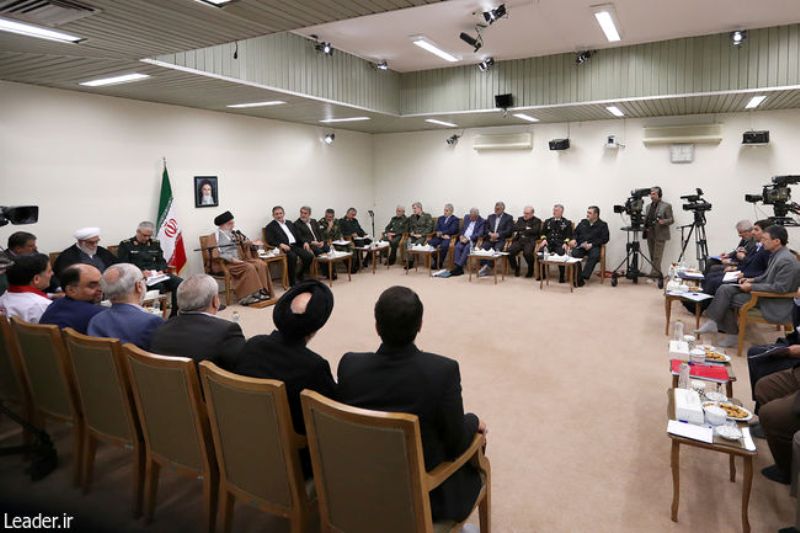
First Vice President Ishaq Jahangiri, head of planning and budget organization as well as ministers of interior affairs, energy, agricultural jihad, housing and urbanization and health are attending the meeting which is still underway.
The heads of Iran's Red Crescent Society, chief of staff of armed forces and commanders of Iranian Army and the Islamic Revolution Guards Corps are also present in the session.
Facing the harshest sanctions from the US that have impeded humanitarian interactions with the world, Iranian people and government managed to harness an unprecedented flooding across the country.
The disaster began with heavy rains in the northern provinces of Iran since the March 19, and continued across Iran with flash rains in southern, central and western provinces.
At some points, at least 25 provinces were struggling with the disaster. Forty-nine people were killed and scores more were injured. It also left thousands of people displaced.
The disaster coincided with the high season of Iranian trips as they were spending the national two-week holidays of Nowruz.
Despite the urgent need of Iranian people to preliminary aids, Iranian people were left without any help on the side of global humanitarian organizations, including the Red Cross, due to US unilateral sanctions on Iran.
Calling the sanctions 'economic terrorism', Iranian Foreign Minister Javad Zarif on Twitter slammed the US for defying the UNSC resolution 2231 and the ruling of International Court of Justice.
He said that the President Trump's 'maximum pressure' has impeded the aid efforts by Iranian Red Crescent to all communities.
President of the International Committee of the Red Cross (ICRC) Peter Maurer, has criticized politicizing humanitarian aids, saying sanctions have hindered issuance of assistances. He made the remarks at a UN Security Council meeting on the promotion and strengthening of the rule of law: international humanitarian law: 'Safeguarding Humanitarian Space'.
Despite the pressures, however, many countries, including the European allies of the US offered their helping hands to Iran.
German Ambassador to Tehran Michael Klor Berchtold said that his country will provide Iranian flood-stricken people with humanitarian aids including 40 boats.
British Red Cross announced readiness for supplying aids to Iranian flood-hit people. Turkey too deployed consignments for Iranian people and assured Tehran that it was beside it in handling the difficulty.
Many other heads of states or missions expressed their sadness over the tragic flooding in Iran and said they were ready to help Iran in the difficult situation.
During the crisis, many Iranian popular groups and charity institutions stepped in shoulder to shoulder with the country's Armed Forces in rescue and relief operations.
Iranians irrespective of their race, ethnicity or language displayed a high level of affection and solidarity during the tough days of flood. The unity and cooperation was so eye-catching that media described the disaster as the 'flood of sympathy'.
The government bodies and organizations did not stand idly by. Iranian President in regular contacts was briefed by local officials and governors, and gave them the necessary orders on the process and procedure of relief operations. He also deployed special envoys to various flood-hit areas to assess the situation closely and oversee the relief activities.
1424
Follow us on Twitter @IrnaEnglish
 solhkhabar | Peace International News Agency Peace International News Agency , Peace News , International Agency News of Peace
solhkhabar | Peace International News Agency Peace International News Agency , Peace News , International Agency News of Peace